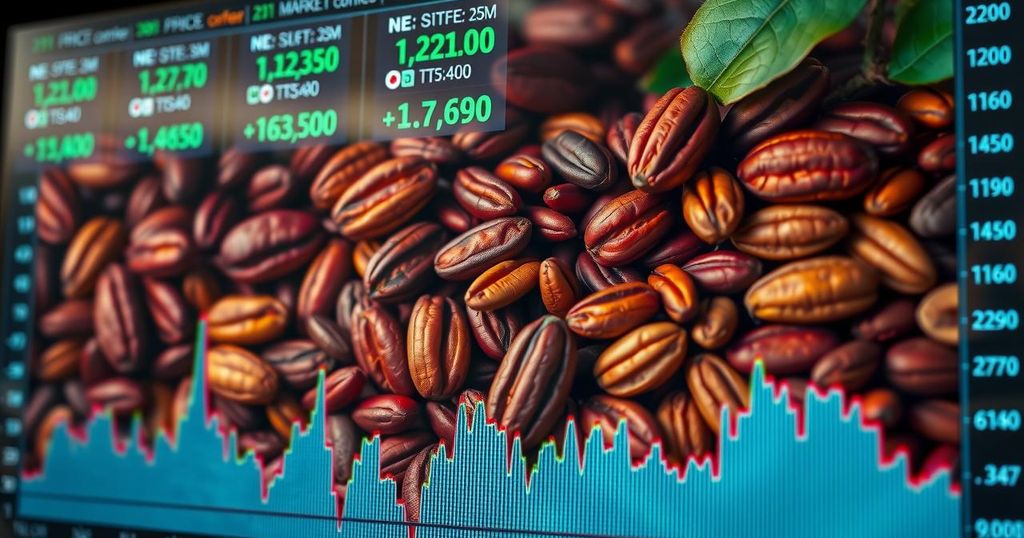Cocoa prices have dipped to $11,936 per metric ton after record highs, amidst expectations of reduced arrivals from the Ivory Coast due to dry weather, while sugar prices are up at 19.74 cents per pound due to supply issues in Brazil. Other soft commodities, including coffee, are also showing signs of price volatility influenced by climate factors.
Cocoa prices have recently experienced a mild decline following a period of record highs, with New York cocoa futures currently listed at $11,936 per metric ton. This adjustment occurs as projections indicate a slowdown in port arrivals from the Ivory Coast due to persistent dry weather, which could adversely affect production forecasts for the upcoming 2024/25 season. However, it is noteworthy that cocoa arrivals have surged by 30.1% since October 1, reflecting a robust supply despite potential future challenges.
In contrast, sugar prices are on the rise, reaching 19.74 cents per pound, primarily due to supply concerns stemming from Brazil’s shrinking sugar output as mills close for the season. Activity in the market appears volatile, although some support is anticipated through short-covering strategies. Additionally, March white sugar futures have increased to $515.70 per ton, demonstrating a positive market trend. Meanwhile, Arabica coffee futures have fallen to $3.1645 per pound, reverting from previous gains and facing market pressures from Brazil’s drought and uncertainty regarding coffee yields. Conversely, robusta coffee futures also decreased to $4,958 per ton, mirroring overall commodity market trends.
The fluctuations in cocoa and sugar prices highlight the effects of regional climate conditions and production dynamics on global soft commodity markets. Cocoa’s recent price dip and the simultaneous rise in sugar prices illustrate a complex interaction influenced by weather patterns, supply issues, and regional variances in production capabilities. The situation underscores the importance of monitoring market activities that could significantly impact investment strategies, particularly in regions reliant on these exports.
In summary, the soft commodities market is currently characterized by diverging trends in cocoa and sugar prices, influenced by weather conditions and production changes. The decrease in cocoa futures amid strong supply contrasts with the rising sugar prices driven by supply shortfalls in Brazil. Investors should remain alert to these developments, as they may have far-reaching implications for market strategies and agricultural policies worldwide.
Original Source: finimize.com







